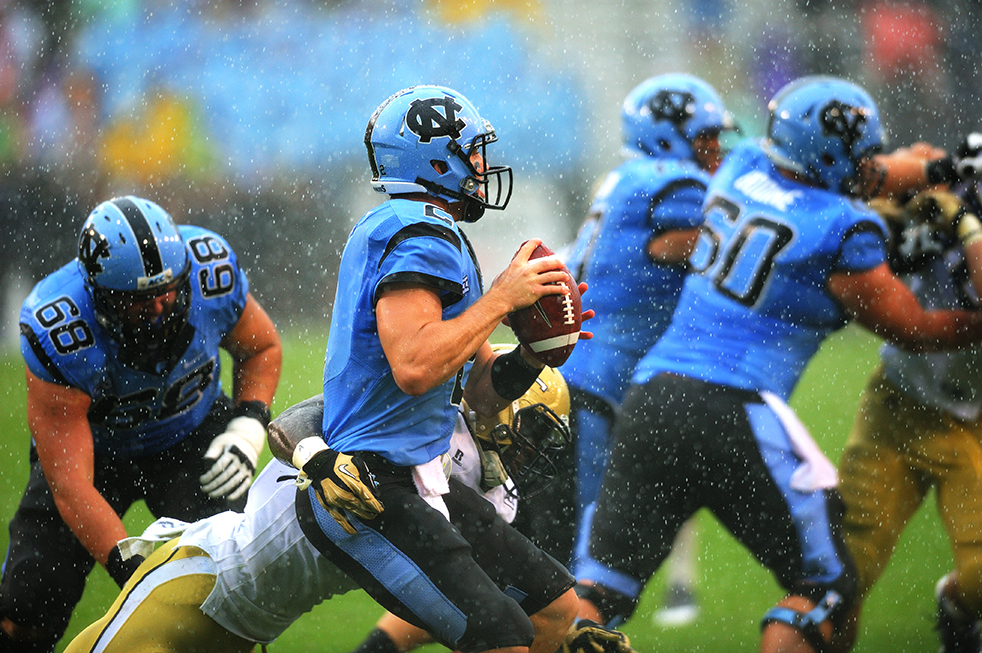The University of North Carolina at Chapel Hill is one of America’s most prominent public universities and one that, with good reason, prides itself on its academic reputation.
However, over the last two years the university has been embroiled in an academic scandal that has seen the school lose its Chancellor and Athletic Director and has resulted in the head of the African-American studies department being charged with an alleged felony for unlawfully, willfully and feloniously accepting payment with the intent to cheat and defraud the university.
This all stems from the Afro-American studies department holding hundreds of “fake classes” attended solely by athletes. Phony grades were given out with the intent of helping to preserve the eligibility of Tar Heel athletes, but it does not end there.
Over the last few months, Mary Willingham, a former learning specialist and tutor for UNC, has claimed that UNC admitted many athletes that could have been considered “functionally illiterate” for the sole purpose of having them on an athletic team.
While Willingham’s data is far from being universally accepted, with the university denouncing her research and claiming it as invalid, the events at UNC over the last few years have opened up all kinds of questions about college athletes and their treatment while in school.
If any of the information coming from Chapel Hill is accurate, not only is it embarrassing to the University itself, but it should also be seen as a prime example of an inherently flawed system. When a college with as much prestige as UNC is willing to go to lengths such as these just to win a basketball game, it should be viewed as a denouncement on college athletics as a whole and a clear sign that change is needed throughout the system. And, if a recent report from CNN is any indication, events such as these are in no way limited just to UNC.
In fact, an investigation done by the news network claims that many college athletes can only read up to an eight-grade level.
So while the situation at UNC may be the most publicized and visible example, this should really be seen as an indictment of the college athletic system.
Athletes are undoubtedly an invaluable economic asset to colleges and they generate billions of dollars each year for universities all around the country. But they are much more than that, and are, and should be considered to be, student-athletes first and foremost.
By admitting athletes who are unprepared for college and not giving them the assistance they need once they arrive, colleges are perpetuating a system that is unfair to the athletes who need the extra assistance. Athletes end up being stereotyped as “dumb jocks” and other students at the university are embarrassed by having the integrity of their university questioned by the media.
If these athletes have been admitted when they otherwise might not have been and are struggling with coursework at school, then they should be given tutoring, extra classes and placement in courses where they have the highest probability to succeed.
They should not, as former UNC football start Michael McAdoo claims he was, be steered towards classes that are easy, or, as in the case of UNC, even fraudulent. That strategy may help them retain their eligibility, but they will not actually benefit from it. It is, for lack of a better phrase, defrauding these athletes of the education they rightly deserve and the education that they are attending college to receive.
Even if these student-athletes happen to be at an academic level below that of their classmates, it does not mean they do not want to learn and that they do not want to better themselves. Denying them this opportunity or treating them differently for the sole reason of being an athlete is a travesty to the education system and undermines the integrity of the University.
The purpose of college sports is to bring a university together and to provide a source of unity among the school, to bring back alumni and to foster school pride. But as is the case with UNC, sports, and many of the athletes involved, now represent a divisive issue, one that is a source of friction between students, the athletic program and the administration. The problem goes far beyond UNC and it is not one that should be ignored.
Education should come before athletics for a university, not the other way around.
